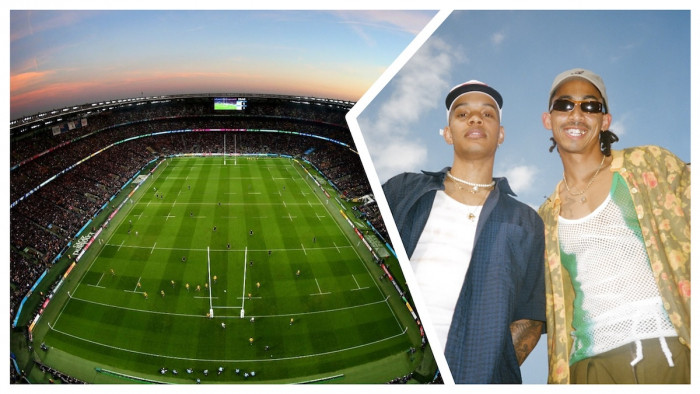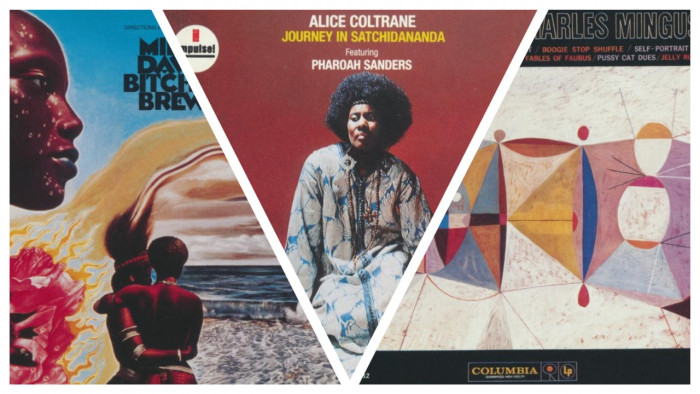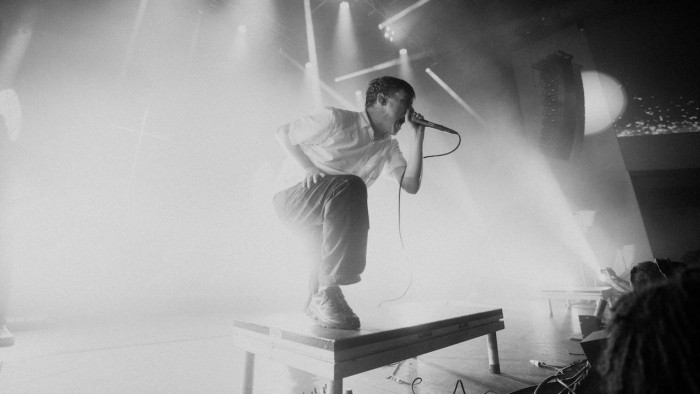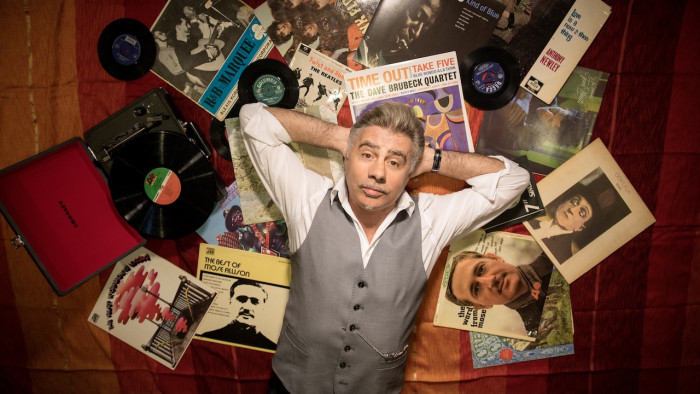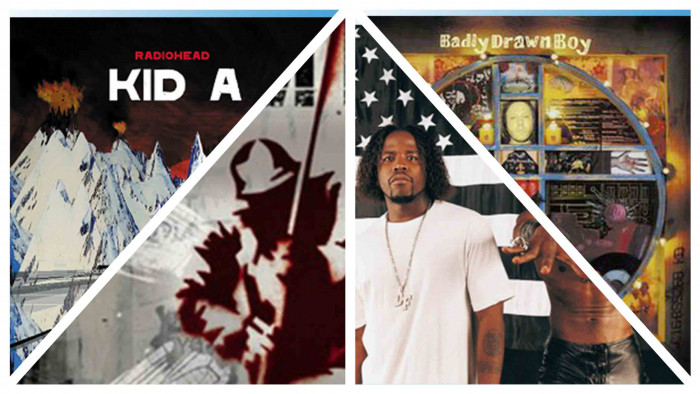Why 'Divide' is Ed Sheeran's 'Be Here Now'
The uncanny similarities between the two record-selling albums


It’s official: Ed Sheeran has won.
The man derided as dull. As safe. As ugly. As beige. As ‘the new boring’. He has utterly triumphed, and made us all look like idiots.
His third album,÷ or Divide if you prefer words to symbols, has clocked up enormous sales, shifting 232,000 copies on its first day. To put that into perspective, the current number one album, Gang Signs and Prayer by Stormzy, sold ‘only’ 69,000 in its first week – itself, a perfectly respectable, even good, amount. They are staggering numbers in this day and age, comparable only to Adele. Not only that, but on his last tour, he sold out three Wembley Stadiums – how many will he do this time around, once he’s got the trifling matter of an arena run out of the way?
As Ben Cook, president of his label Atlantic Records UK, said: "Ed is an artist that inspires a generation, and the release of Divide is a global event.”
Sheeran is Here To Stay, it seems. Or perhaps, really, we should say he should Be Here Now.
Because, as unlikely as it seems, there are a host of similarities between the release of Sheeran’s third album, and the third album by Oasis.
--
It’s easy to forget now, but even after a debut album as manifestly brilliant as Definitely Maybe, it was no forgone conclusion that Oasis would dominate the musical landscape like they did. After all, the ‘Roll With It’ vs ‘Country House’ chart battle was only as interesting as it was because it was a fair fight; indeed, Blur won the battle with ‘Country House’ hitting number one, before (What’s The Story?) Morning Glory came out and laid waste to the whole scene.
But ‘Roll With It’wasn’t a slam dunk single. And reviews for ...Morning Glory were decidedly mixed. NME gave it a non-committal 7 out of 10 (“A group that has peered over the edge and could lose their footing”), while Melody Maker’s David Stubbs wrote: "What's the Story [sounds] laboured and lazy. On this evidence, Oasis are a limited band ... they sound knackered."
They were well and truly taken by surprise by the eventual huge success of the record; they were unprepared for the way in which ‘Wonderwall’ and ‘Don’t Look Back in Anger’ – which emerged as singles after the album had been released – swept the nation, entering into jukeboxes across the land and the consciousness of everyone from your best mate to your grandma. Of course, they ended up playing two back-to-back shows at Knebworth less than a year after the album came out, playing to 250,000 people, with an astonishing 2.5 million applying for tickets.
Fast forward to 2011 and, while Ed Sheeran’s debut album + sold big amounts – going triple platinum by the end of the year – it only narrowly went to number one ahead of Laura Marling. ‘The A Team’ was a huge hit, and the album received positive (pardon the pun) reviews, but he was still the poster boy for The New Boring and an easy punchbag for media types like Caitlin Moran. There was no guarantee that he would turn into the phenomenon he has.
But, just like ...Morning Glory, his second album, x, released in June 2014 went stratospheric. Why?
Well, he’d simply upped his game, with ‘Don’t’ and ‘Sing’ bona fide great tracks that even the haters couldn’t deny. ‘Sing’, in particular, silenced his critics in one swoop by enlisting the production talents of Pharrell Williams. If Pharrell thought Ed was cool then… maybe he actually was?
However, the killer move was the presence of his very own ‘Wonderwall’ in the form of ‘Thinking Out Loud’, a song destined to be played at wedding receptions until the end of time. It transcended everything, proved that The A Team was no fluke (just like ‘Wonderwall’ proved that ‘Live Forever’ – the crucial slow track 3 on Definitely Maybe wasn’t a one-off) and catapulted him into the big league.
Oasis’ Morning Glory tour began straight after the release of the album and didn’t stop. Round and round the world they went and each time they went back to a territory they simply played bigger shows as word spread, leading to the Maine Road gigs and then the triumphant shows at Knebworth.
The same thing happened on Sheeran’s x tour, with his Wembley and Croke Park shows the equivalent of Maine Road and Knebworth, both in numbers and prestige.
Oasis in 1997 were untouchable. You could not criticise them, they had simply destroyed all opponents and risen above all criticism. Sheeran is in exactly the same position.
We all know what happened next with Oasis.
--
Divide, like Be Here Now before it, cannot fail to be enormous.
Whatever it sounded like, it was destined to sell by the bucketload to people who had already been convinced by the story so far. And sure enough, as soon as the two lead singles ‘Castle on the Hill’ and ‘Shape of You’ hit radio, everyone was lining up to hail the return of the king.
You now cannot find a critic of Sheeran. Even Caitlin Moran posted a mea culpa on her Twitter feed.
Just like Be Here Now, publications who had completely failed to spot the phenomenon that was about to happen were not going to miss out a second time. Despite knowing deep down that it wasn’t the all-time classic everyone was making it out to be (“...grotesquely over-the-top. It features the same old guitar runs, the same old drawled lyrical doodlings, the same pub-tastic, pint-mungous rhythms”) the NME couldn’t bring itself to face the grim truth about the record. It duly awarded it 8/10, proclaiming that “Individually, each song already resonates with the vast, communal spirit that has propelled them thus far; the sense that – put in its purest form – here are yet another 11 songs the slightly sozzled world will be bursting to sing.”
Barely anyone awarded Be Here Now any less than four stars. The same thing has happened with Divide – publications which had previously slagged Sheeran off to the nth degree were suddenly proclaiming him to be a genius. After all, who wants to be on the wrong side of history twice? You can’t blame them.
Even Sheeran himself is indulging in a spot of Gallagherism. While it was no surprise to hear Noel at the time declare it to the greatest musical world of all-time, it was more surprising to read Ed say that Divide was “the best thing I have made thus far”; “the biggest fucking pop album it could be” and when asked if it would sell less than x, “I’ll bet you anything now it won’t. I don’t think there’s any possibility it will… I don’t think I’ll have a year like this again.”
And he’s not wrong. It’s gone stratospheric. But so did Be Here Now. And then we actually listened to it, in the cold light of day and realised the terrible truth. It wasn’t actually that great.
Don’t get me wrong, the pendulum swung far too far in the wrong direction when it came to Be Here Now. Once the dust had settled a year or two after its release, the criticism – including from Noel himself – it received was too harsh, and this was justly corrected earlier this year when it reached the grand old age of 20 and we collectively, retrospectively appraised it for what it was: a good album, but one that was fundamentally flawed.
In the same way, let me skip forward 20 years and say: Divide is not a brilliant album. As with Be Here Now, it is the third best album by Ed Sheeran so far, even though it may sell the most.
What flawed it for Oasis was the cocaine and ambition. They took what they had on ...Morning Glory and threw drugs at it, meaning that every song was too long, everything was overproduced and in place of charm came (even more) bombast. They were so desperate to sound like the biggest band in the world, with mountains of blow reinforcing their own belief so much that they missed the wood for the trees and lost some of the magic that went before.
What’s flawed it for Sheeran is niceness and ambition.
Divide is almost offensively inoffensive. Sheeran’s tactic of being nice to everyone has worked a treat, but trying not to offend anyone, and to appeal to absolutely everyone means that it ultimately commits to nothing. It’s a focus group of styles, with the edges sanded off, that aims for maximum coverage. He even admitted as much when he told Chris Evans that he’d written ‘Shape Of You’ to be a ‘Radio 1’ song, since ‘Castle on the Hill’ was one for Radio 2.
Sheeran’s attempts to branch into Irish folk with ‘Galway Girl’ and ‘Nancy Mulligan’ may be well-intentioned, and even authentic, given his lineage and the co-writing presence of highly-respected Irish group Beoga, but the former is a ham-fisted track which crams more cliches into 170 seconds than you can imagine and adds a cynical radio sheen to attract that ‘Corrs audience’, taking something that could have been interesting and provocative and turning it into a bland facsimile of a real folk song. Of course, it’s currently the biggest-selling track from the album, so maybe that’s proof again that bland facsimiles shift units.
While clearly still a nice guy, he’s been bouyed by his enormous co-writing success elsewhere – and who can blame him, seeing as he casually wrote the biggest song of Justin Bieber’s career – and the fact that he’s triumphed over his critics to believe he can do anything.
Witness the bombastic quotes above together with the news that he now wants to create a ‘superpop’ boy band (“I’m gonna put three or four boys together and do all the songs, take them on the stadium tour with me”) and write and star in a film that would be a ‘mix of Notting Hill and Once’. Oh, and witness the casual assumption that he’ll be playing stadiums forever: “I want to do stadiums everywhere. Like George Strait’s level – he tours every four years, does a couple of stadiums and then fucks off again.” Does he really have his feet on the ground any more?
Like many things with Ed, he’s probably right – after all, Oasis continued to play stadiums for the rest of their career despite not coming close to even matching Be Here Now, let alone ...Morning Glory, until Don’t Believe The Truth, eight years later.
But, when it boils down to it, there’s nothing on this album to match Thinking Out Loud and many of the songs are just downright average. Are there good songs here? Yes, of course – he’s clearly a brilliant musician and songwriter and ‘Hearts Don’t Break Around Here’, for example, is an expertly-crafted song – and there are no downright bad ones. But in ten years time, fans will rate + and x far, far beyond this album.
Oh, and one other thing he shares with Noel – a fondness for a touch of, ahem, ‘interpolation’. While he is being sued by the co-writer of Marvin Gaye’s ‘Let’s Get It On’ for ‘Thinking Out Loud’’s use of its chord sequence, there’s more than a few sections of Divide that sound familiar. The prechorus of ‘Shape Of You’ and ‘No Scrubs’? ‘Happier’ and Sam Smith’s ‘Stay With Me’ (itself a song that ripped off Tom Petty’s ‘Won’t Back Down’)? ‘Bibia Be Ye Ye’ should have Vampire Weekend’s lawyers on the phone. Still, like Noel, at least he (allegedly) rips off good songs.
Sheeran, of course, won’t care one bit as he plays to millions and his streaming numbers hit the billions. And he’s earned those figures, and the praise he gets now – after all, he endured the slagging for long enough. But he shouldn’t be surprised if people wake up in a couple of years and wonder what all the fuss was about. And he may even, deep down, wonder himself too when he listens back to it.
